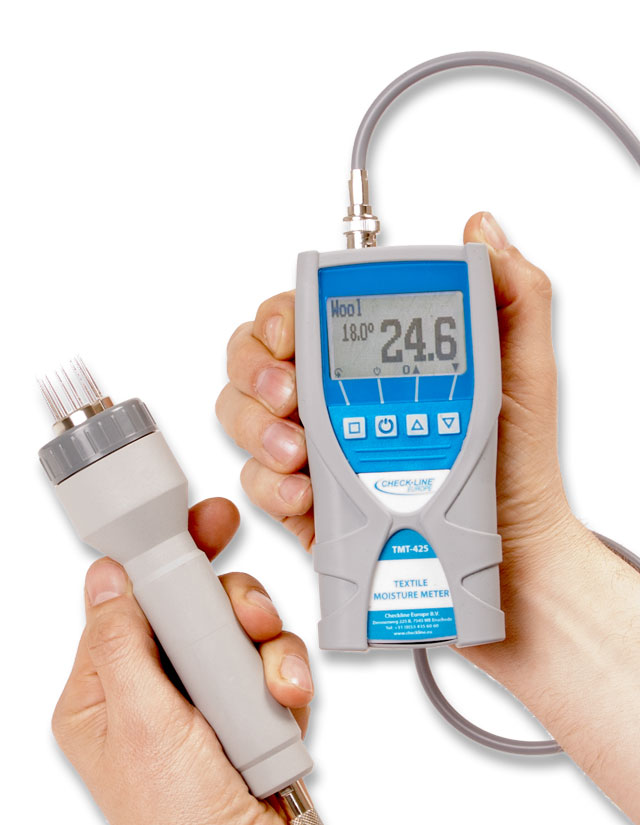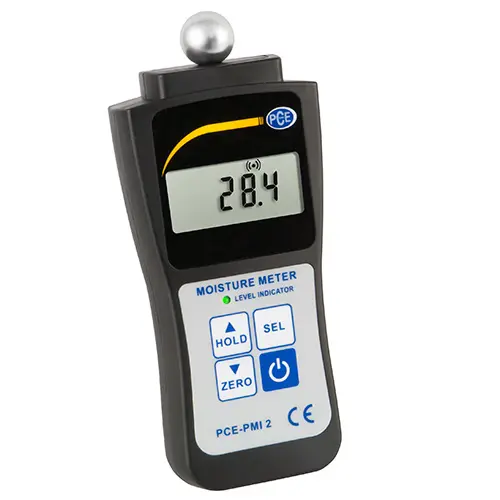Leading 10 Advantages of Using a Moisture Meter for Correct Measurements in your house
Leading 10 Advantages of Using a Moisture Meter for Correct Measurements in your house
Blog Article
The Ultimate Overview to Dampness Meters: A Comprehensive Summary and How They Can Conserve You Money
In the realm of building upkeep, construction, and various industries, the value of accurately determining wetness degrees can not be overstated. Dampness meters work as indispensable devices in identifying and monitoring moisture material in materials, aiding in avoiding costly problems and ensuring the top quality of items. Recognizing the subtleties of different types of dampness meters, their applications, and the potential cost-saving benefits they offer can be a game-changer for specialists and companies alike. Finding exactly how these tools can not just simplify processes yet additionally add to economic cost savings is a trip worth embarking on.
Kinds Of Wetness Meters
One typical type is the pin-type dampness meter, which determines the electric resistance in between 2 pins put into a material. Pinless wetness meters, on the other hand, use electromagnetic sensing unit plates to scan a bigger area without causing damage to the material's surface.

Additionally, there are additionally specialized wetness meters made for details materials like grain, dirt, or hay. These meters provide exact moisture analyses tailored to the one-of-a-kind residential properties of the product being evaluated. Infrared dampness meters determine the thermal properties of a material to identify its wetness content non-invasively, making them helpful for applications where pin or pinless meters may not be appropriate. Comprehending the different sorts of wetness meters available can aid sectors choose the most suitable tool for their particular moisture measurement requirements.

Benefits of Utilizing Dampness Meters
Dampness meters use important advantages in properly monitoring and evaluating moisture levels in diverse products and settings (Moisture Meter). Among the key benefits of utilizing wetness meters is the avoidance of prospective damages triggered by excess moisture. By detecting and resolving high wetness degrees early, moisture meters aid to avoid mold and mildew growth, rot, and structural damage in structures, conserving both time and cash on repair services. In addition, moisture meters help in making sure the high quality of products during building or manufacturing processes. By accurately determining dampness content, these devices aid keep the honesty of wood, drywall, concrete, and various other materials, lowering the danger of failings or defects.
Moreover, using dampness meters can lead to enhanced power effectiveness. By determining areas with high wetness levels, such as leakages or poor insulation, modifications can be made to improve energy conservation and decrease utility expenses. In agricultural setups, dampness meters play a crucial duty in enhancing plant returns by allowing farmers to check soil wetness degrees and make notified watering decisions. Overall, the benefits of utilizing wetness meters span throughout different markets, providing cost-efficient solutions and advertising far better top quality control practices.
How to Select the Right Wetness Meter
When picking a dampness meter, it's important to guarantee that the meter is ideal for the particular material you will certainly be screening. Various materials have differing electric residential or commercial properties that can impact wetness readings, so picking a meter designed for your material is important for precise outcomes. By meticulously examining these factors, you can pick a wetness meter that meets your demands and gives accurate moisture measurements for your jobs.
Appropriate Techniques for Wetness Meter Use

Price Savings With Wetness Meter Applications
Exactly how can the calculated usage of wetness meters cause substantial cost financial savings across numerous markets? Wetness meters play an important function in price financial savings by stopping possible damage and making sure quality assurance in different sectors. In the farming sector, wetness meters help in determining the optimal time for gathering crops, protecting against over-drying or excess wetness that can impact the last item's quality. This precise surveillance helps farmers stay clear of unnecessary losses and maximize their yield.
In a similar way, in building, dampness meters aid protect against costly damages by discovering wetness degrees in building products, such as timber or concrete, which can bring about architectural concerns if not dealt with immediately. By recognizing problem areas beforehand, contractors can take rehabilitative measures to avoid substantial fixings or replacements, inevitably saving money and time.
Moreover, in the food handling sector, wetness meters are necessary for keeping an eye on product top quality and guaranteeing conformity with security regulations. By properly determining wetness content in food, makers can prevent perishing, preserve freshness, and lower waste, causing substantial expense financial savings. In general, the tactical application of dampness meters is an important financial investment that can bring about considerable cost decreases and boosted performance throughout different sectors.
Verdict
In final thought, moisture meters are valuable devices for detecting and measuring dampness degrees in various materials. By using the right wetness meter and following correct methods, users can efficiently avoid expensive damages triggered by excess moisture.
Dampness meters offer as indispensable devices in identifying and monitoring moisture material in products, helping in protecting against pricey damages and ensuring the top quality of products. Infrared wetness meters gauge the thermal properties of a product to establish its dampness material non-invasively, making them valuable for applications where pin or pinless meters might not be ideal.Moisture meters provide important advantages in accurately monitoring and analyzing dampness degrees in diverse products and settings. In agricultural setups, wetness meters play an important function in maximizing plant returns by enabling farmers to keep track of dirt article source dampness levels and make notified watering decisions.In conclusion, dampness meters are useful devices for identifying and gauging moisture degrees in numerous products.
Report this page